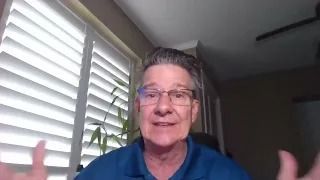Call (727) 784-5555
Homeowners' insurance can be a confusing and complicated product, but it’s important to have. If you own a home or are planning to buy one in the near future, you should know your coverage so you are protected.
Here's my advice for managing your homeowners' policy.
Review Your Policy Annually
The end of the year is a great time to review your policy and your premium costs. Here's why:
You'll see how much you're paying for coverage relative to what similar homes are costing their owners. You may find that you're spending more than you need to be, and that you could save money by switching companies or adding another line of coverage.
Because of a bad year, insurance companies might increase rates. If this happens to you (or if it hasn't happened yet), you'll have time to shop around for better offers before the new rate kicks in next year.
The amount of coverage you have may change over time, depending on what you own and how much it's worth. You should check with your insurance company at least once every couple of years to make sure that they still have everything covered. If there has been a big purchase or an increase in value, such as upgrading appliances or adding new appliances, be sure to let them know so they can adjust coverage accordingly.
Changes In The Industry
Florida homeowners insurance claims are increasing. The main reason is because of wind damage claims. Claims for roof damage have increased significantly over the last year. According to Jon Schuppe "An avalanche of lawsuits fueled by roofing scams has plunged Florida into a property insurance crisis that has forced dozens of companies to shut their doors, drop customers, raise rates or flee the state. It’s a slow-motion collapse that lawmakers have known about for years but have failed to fix."
Companies are getting downgraded by their credit agencies because they may not have enough money to pay their claims. Other companies are leaving Florida because the risk is too high to operate here.
What You Can Do
Four-point inspections are one way to lower the cost of your insurance and help you qualify for homeowners insurance. Shopping around is another way to make sure you have the best coverage at the lowest price. If you have cash on hand, you can raise your deductible to lower your premium. Bundling insurance is often another great option to lower your premium costs.
If you have any questions about what's happening in the insurance industry, call now at (727) 784-5555 or ask me a question using the form below.
Ask a Question
Use the form below and we will give your our expert answers!
Non QM Ask A Question
We will get back to you as soon as possible.
Please try again later.
Start Your Loan
with DDA todayYour local Mortgage Broker
Mortgage Broker Largo See our Reviews
Looking for more details? Listen to our extended podcast!
Check out our other helpful videos to learn more about credit and residential mortgages.





